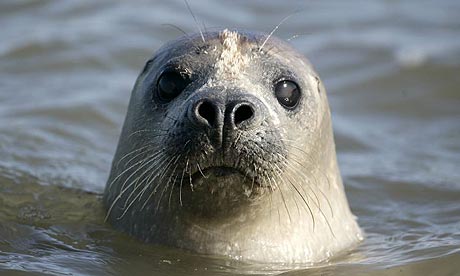I ran across a video talking about animals that are currently evolving. Did some more research to see if it was true and apparently it is. The major shocking discovery In my opinion is that changes elephants have made. Do to the fact that elephants have been hunted so heavely for thier tusks elphants in both Indian and Africa are being born with out tusks. In the early 1900s it was thought that only about 1% of these animals were born with out tusks. Now recent studies show a much higher rate in fact in one area of Zambia as many as 38% of elephants in this one valley are born with out tusks.
Modern evelution and animals that are curently changing
by Crazyguy 7 Replies latest social current
-
-
Vidiot
Well, since the vast majority of tusked male elephants have been hunted out by poachers, the untusked males have finally gotten their shot at reproducing.
Natural selection functions, even when humans meddle.
-
cofty
Evolution has never stopped.
Keep in mind that what is actually going on is that elephants with the biggest tusks are leaving fewer genes because they are being hunted. Those with genes for smaller tusks, or no tusks, are having more breeding success.
Don't fall into the trap of thinking in terms of individuals "adapting".
Ivory hunters are exerting a new evolutionary pressure on the species. Whereas at one time having big tusks added to reproductive success now the opposite is the case.
-
Finkelstein
What are you talking about ?
-
Vidiot
cofty - "Don't fall into the trap of thinking in terms of individuals 'adapting'."
Correct.
It's populations that adapt.
-
Crazyguy
Cofty, isn't that how all species evolved through needed adaptations or die? Not sure what your getting at? -
cofty
What I mean is that a lot of people get confused between evolution and something they call "adaptation".
JWs and other creationists are prone to admitting that species can "adapt" but they never seem able to explain what they mean by that.
Animals don't "adapt".
The genes that influence the tusk size of African elephants is a good example. In any population of individuals there will be a range of DNA "recipes" for making tusks. At one time the cost of making big tusks was outweighed by the advantage of winning the right to breed more often. Tusks were used to fight off other males and impress females. Males who had the genes for big tusks got more breeding opportunities and so those varieties of genes - or alleles - for making big tusks spread in the population.
Now that poachers pick off elephants with the biggest tusks males with genes for making smaller tusks get more breeding opportunities and leave more copies of those versions of tusk-making genes in the gene pool.
Nothing has "adapted". A change has occurred in the frequency of particular alleles in a population of African elephants.
-
M*A*S*H
@Cofty I think you are setting yourself up for a quote mine there.
In the context of evolution 'adaption' would be used to describe an animal population becoming more fit for the environment in which they exist. Selection pressures on the population's heritable variation will result in... 'evolution by natural selection' (hmm, that sounds like a great title for a book). Nowadays human selection pressure can have a similar effect on populations.
To paraphrase Cofty... 'Evolution happens to populations not individuals'.
True, some creationists will concede that 'adaption' in animal populations does happen; in my experience they normally call this micro-evolution. However (again, in my experience) they can never offer a mechanism that would stop all this 'adaption' or 'microevolution' adding up to any of the four types of speciation event.
